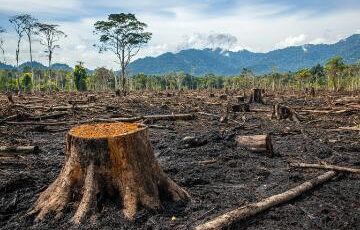
Why are sustainability claims legally relevant for businesses in the Netherlands?
Sustainability claims represent an essential marketing tool, yet simultaneously pose significant legal risks. The Netherlands Authority for Consumers and Markets (ACM) actively enforces consumer protection regulations regarding misleading sustainability practices. In the Netherlands, 61% of consumers use sustainability as a decision criterion when making purchases, however a significant portion considers sustainability claims unreliable. Consequently, this trust deficit creates legal risks for companies using incorrect claims.
Legal Context and ACM Enforcement Authority in the Netherlands
The ACM bases its supervision on the European UCP Directive (Directive 2005/29/EC) concerning unfair commercial practices. Therefore, the ACM can impose fines and issue penalty payments for violations. Moreover, the ACM collaborates with European supervisory authorities through the CPC Regulation for cross-border enforcement.
What constitutes misleading commercial practices under Dutch law? Misleading practices encompass two main categories: factually incorrect or misleading information, and the omission of essential information. These practices are unlawful when they materially impair the ability of the average consumer to make an informed decision.
Practical Guidelines for Lawful Sustainability Claims under Dutch law
Guideline 1: Specify the Concrete Sustainability Benefit
Sustainability claims must be clear, accurate and relevant. Vague terms such as “eco,” “green,” “fair” or “sustainable” without further specification almost always mislead consumers. Therefore, you must describe the specific sustainability benefit with concrete units, measurable standards or verifiable facts.
Dutch Business Practice Example: Washing Machine Brand and Energy Savings
A Dutch household appliance manufacturer launched a new washing machine with the claim “30% less energy consumption.” However, this benefit applied exclusively when using the special eco mode. Following ACM intervention, the company reformulated the claim to: “When activating the eco mode, this washing machine consumes 30% less energy than during normal use.” This adjustment increased transparency and reduced the risk of misleading consumers who use normal programs.
How do you prevent legal problems with general terms? Avoid absolute claims unless you demonstrably have substantially reduced the total negative impact on human rights, animal rights and the environment. Preferably use a ‘lifecycle’ approach or ‘footprint’ methodology to substantiate general claims such as “sustainable product.”
Guideline 2: Substantiate Claims with Verifiable Facts and Keep Them Current
From the moment of publication, you must possess verifiable evidence. The burden of proof rests entirely with the claiming party. Ultimately, new legislation, technological progress and market standards determine whether your claim remains relevant.
For example: a coffee brand claims “sustainable coffee” based on organic cultivation. Skal Biocontrole must have issued this organic certification according to the Dutch Agricultural Quality Regulation 2007. Additionally, the company must communicate transparently about working conditions in accordance with ILO standards if the claim relates to this aspect.
Guideline 3: Comparisons Must Be Fair and Transparent
With which products may you compare your sustainability benefits? Comparisons are legally permitted with: (1) your own previous product, (2) comparable products from competitors, or (3) the generally accepted industry standard. Furthermore, you must express comparisons in absolute values or percentages.
Legal Pitfall under Dutch law: Unclear Comparison Basis
An egg producer used the claim “more space for chickens” without reference. This proved to be 16 chickens per square meter, while the industry standard is 12 chickens per square meter. This claim wrongly suggests that the company performs better than competitors, whereas the company actually lags behind the industry standard.
Guideline 4: Be Specific About Corporate Efforts and Distinguish Product Claims
How does a corporate claim relate to a product claim? You must clearly distinguish between sustainability information about your organization and specific product benefits. A claim about corporate ambitions may only be used for marketing when a concrete, verifiable strategy exists to realize those goals.
For instance: a major oil company developed biofuel that produces 50% less CO₂ emissions. However, this biofuel represents only 2% of total production in 2025. Claims such as “on the path to CO₂ neutrality” can be misleading because they suggest the company is substantially more sustainable than reality justifies.
Guideline 5: Visual Claims and Quality Marks Must Be Informative
What requirements apply to sustainability quality marks in the Netherlands? Consumers may only see official certification logos for standards for which the product is actually certified. Additionally, it must be clear which criteria the quality mark applies and whether an independent organization performs verification.
In the Netherlands, no legal obligation exists for quality marks, which resulted in a “quality mark jungle.” Milieu Centraal manages a database with 250 quality marks that provides transparency about verification processes and criteria. The Dutch Council for Accreditation (RvA) recognizes organizations that issue quality marks based on expertise and independence.
Specific Legal Issues for Commonly Used Claims in the Netherlands
How do you use the term “organic” lawfully?
The term “organic” falls under specific EU legislation. For food products, Regulation (EC) No. 834/2007 applies, whereby Skal Biocontrole supervises in the Netherlands. For textiles and cosmetics without specific regulation, you may only use “organic” when at least 95% of the materials or ingredients come from certified organic production.
When may a product be called “CO₂-neutral”?
CO₂ neutrality requires a complete calculation of all greenhouse gas emissions, whereby the total equals zero. You achieve this by making production processes structurally more sustainable or through CO₂ compensation. With compensation, you must communicate transparently about: the compensated volume, specific projects, geographical location, executing organization and any certification (for example Gold Standard).
Practice Example Car Rental Company
A car rental company offers consumers CO₂ compensation. The lawful claim states: “This car emits X grams of CO₂ per kilometer. By contributing to reforestation projects in South America, organized by organization X and certified according to standard Y, you fully compensate for these emissions.” The company must demonstrably prove that the driven kilometers are actually fully compensated.
How do you communicate about green energy in accordance with Dutch regulations?
“100% Dutch green electricity” requires guarantees of origin (GvOs) from Dutch sustainable sources. The ACM monitors together with CertiQ whether energy suppliers cancel the correct GvOs for each delivered MWh. Consumers can even select wind farms in their own municipality. This transparency prevents misleading information about the actual origin of electricity.
Enforcement and Legal Consequences in the Netherlands
What sanctions do you risk with misleading sustainability claims?
The ACM possesses various enforcement instruments:
- Fines: The amount depends on the severity and impact of the violation
- Order subject to penalty payment: Obligation to cease misleading practices under threat of periodic payments
- European cooperation: Cross-border enforcement through CPC Regulation for international violations
Moreover, competitors who do comply with the rules can institute civil law claims for unfair competition. This results in reputational damage and financial claims.
How does ACM enforcement relate to the Advertising Code Committee?
In addition to ACM supervision, the codes of conduct of the Advertising Code Foundation (SRC) apply. The Advertising Code Committee assesses complaints about misleading advertising expressions. For example, articles 7 and 8 of the Dutch Advertising Code, the Environmental Advertising Code and sector-specific codes impose additional requirements on sustainability communication.
Sector-Specific Applications and EU Legislation
Which products fall under special regulation?
Specific EU regulations apply to:
- Tire labeling: Regulation (EC) No. 1222/2009 on fuel efficiency
- Food information: Regulation (EU) No. 1169/2011
- Organic products: Regulation (EU) 2018/848
This legislation functions as the basic standard, whereby the rules on unfair commercial practices serve as a “safety net” for additional consumer protection.
Practical Implementation Advice for Legal Compliance
Checklist Lawful Sustainability Claim
- Specificity: Describe concrete, measurable benefits with units or standards
- Burden of proof: Collect verifiable documentation before publication
- Currency: Plan periodic reviews to ensure relevance
- Transparency: Communicate clearly about certification and verification methods
- Proportionality: Ensure claims are proportional to actual impact
How do you develop a legally sustainable sustainability strategy?
Avoid developing your own quality marks by first examining existing labels. Consult the Milieu Centraal database to identify suitable certifications. If you nevertheless develop your own program, communicate explicitly that it concerns a company-owned initiative and preferably have this verified by an independent party.
For example: ISO has developed international standards for environmental claims (ISO 14021:2016 for unverified claims, ISO 14024:2018 for verified claims). These standards provide a legally robust framework for claim development.
Future Perspective: Dutch Implementation EU Green Claims Directive
The European Commission is working on additional regulations for environmental claims (Environmental Claims Guidance). The Netherlands has committed through the Paris Climate Agreement and the UN Sustainability Goals to 49% reduction of greenhouse gas emissions in 2030 compared to 1990.
What developments should you monitor as a Dutch business? The EU Green Deal introduces the Circular Economy Action Plan, which stimulates sustainable consumption. These developments will result in stricter requirements for product information and lifecycle responsibility. Companies with a proactive compliance strategy position themselves more favorably for future regulation.
Practical Question and Answer Section for Business Services
May you use future sustainability goals in marketing?
Yes, but only with a concrete, verifiable strategy. You must have already started implementation or do so very soon. Vague visions without concrete action plans mislead consumers about your actual commitment. Communicate transparently about already achieved results and realistic milestones.
How do you assess whether your palm oil claim is legally sustainable?
Consumers associate palm oil with deforestation, habitat destruction and human rights violations. Therefore, a general claim “sustainable palm oil” requires evidence that your palm oil has substantially less impact on human rights, animal rights and the environment than regular palm oil. Specify concrete benefits such as RSPO certification (Roundtable on Sustainable Palm Oil) with clear criteria.
What does “True Pricing” mean for sustainability claims?
True Pricing calculates all negative impacts in monetary terms. This methodology identifies environmental damage, working conditions and social costs that are normally not included in the product price. Lower “true costs” indicate a more sustainable product. When using this method, you must communicate the calculation methodology transparently and have it verified.
Do you need a Dutch law firm?
Do you have questions about the legal sustainability of your sustainability claims? A specialized lawyer in contract law in Amsterdam can preventively assess and optimize your marketing communication within the Dutch and European legal framework. Proactive legal guidance prevents costly enforcement procedures and protects your reputation. Contact us today for a thorough analysis of your sustainability communication according to ACM guidelines and current case law. Invest in legal certainty before launching your next sustainability campaign.









